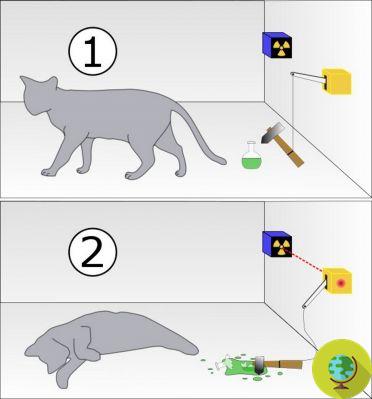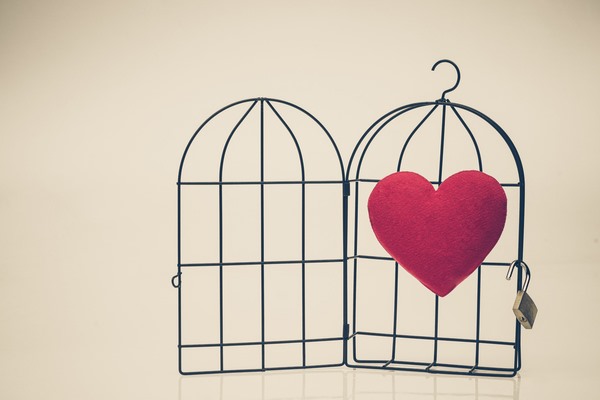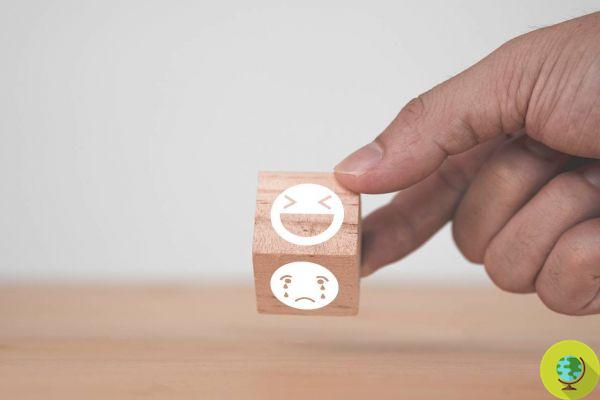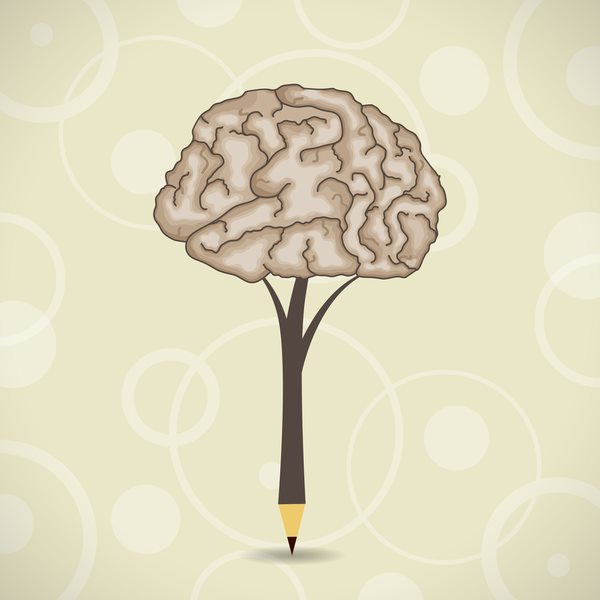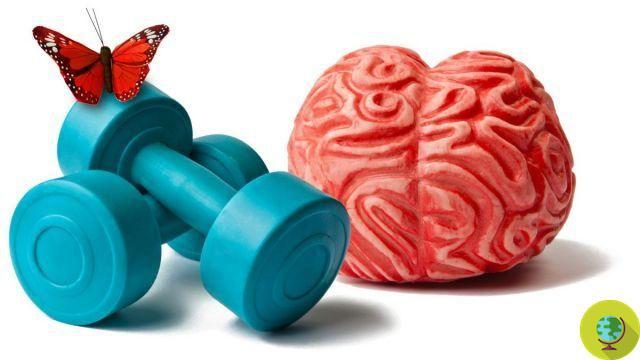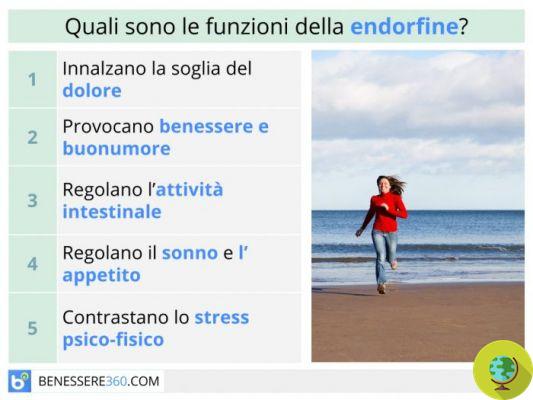
The ingredients of our happiness and how to "self-produce" them.
Don't store avocado like this: it's dangerousAdrenaline, dopamine, endorphins, oxytocin, serotonin, gaba: our level of well-being and happiness depends on these 6 precious substances.
Produced spontaneously by our body, they can be further "solicited" by food choices and / or activities that we can include in our daily routine. Let's see how.
Index
ADRENALINE
THEadrenalina it gives us the “exciting” push that allows us to react quickly to face a situation that we perceive as dangerous, tiring: it helps us to face situations of stress and dramatic urgency. There are those who research it by practicing extreme sports but, in reality, each of us can take advantage of this particular substance secreted by the adrenals simply by learning to get out of their comfort zone. It means, for example: opening up to "unknown areas", unknown; compete with new goals; doing things never done before. Leaving the routine, the known that "reassures" precisely because (good or bad it is) it is known.
Read: ADRENALINE: WHAT IS IT, WHAT IS THE USE OF THE 'FEAR' HORMONE
DOPAMINE
The motivation is instead a nice propeller for the production of dopamine. In fact, this is how our internal reward system works: we can be happy, enthusiastic, nothing can stop us. We do something we like, we are therefore motivated to pursue it and we know how to resist any distractions that would take us elsewhere. Conversely, if dopamine is low, we tend to become demotivated, inconclusive. How to increase or sustain it to a good level? First of all, working to identify what they are our values, our authentic aspirations for achievement: there you can find a strong, intrinsic motivation, which potentially has the substance to face all the challenges. Deep aspirations must then be translated into objectives to be pursued, and objectives must be defined in actions, in the short, medium and long term.
Exercise, meditation help the production of dopamine. Food does the same (by the way: better to reduce caffeine and sugars; green light to bananas); in particular, the health of the intestinal microbiota must also be considered.
Read: DOPAMINE: WHAT IT IS, FUNCTION, EFFECTS AND HOW TO INCREASE THE NATURAL ONE
ENDORFINS
When you are talking about endorphins, now everyone knows that they are linked to well-being. To pleasure. To relaxation. How to encourage its production? It is enough to immerse yourself in the beauty that surrounds us: of a sunset, of a landscape, of a child, of an animal that lives happily. Of what we want, letting ourselves be pervaded by that deep feeling. Receiving massages, giving and receiving caresses, meditating, listening to music, smelling perfumes with pleasant notes (by the way: the essential oil of lavender is anti-stress and "endorphinic" for anyone) are other ways to stimulate them, as well as with all physical activities that spontaneously have a harmony and a rhythm (for example: walking in nature, swimming, dancing and making love). And then there is also the pleasure of the throat: obviously dark chocolate but in general any dish that is to your taste. As long as it is tasted: true pleasure, in fact, cannot be perceived in voracity, in speed but in slowness, in the gratified recognition by the taste buds.
Read: HOW TO NATURALLY STIMULATE ENDORPHINES TO FEEL BETTER?
OXYTOCIN
And then there is her, the hormone of emotional bonding and love, theoxytocin. The demonstration that loving others is absolutely "selfish": we are the first to benefit from it. The level of oxytocin, and the consequent well-being that derives from it, increases after a few seconds of a hug (obviously provided it is not a "fake hug", of convenience or convention); it grows in the proximity of a loved one and in the expression of a gesture of affection, a word of comfort or appreciation. It rises when we listen to whoever is talking to us or if we feel heard, in the depths, while we tell ourselves. It grows when we are with our pets or meditating. And it benefits from a liberating cry, which allows you to release the tension or anxiety or fatigue of a moment.
Read: OXYTHOCIN: WHAT IT IS, WHERE IT IS AND HOW TO STIMULATE THE LOVE HORMONE
SEROTONIN
And the Serotonin, the so-called happiness hormone? According to numerous scientific studies there are two natural ways to facilitate the spontaneous production of serotonin: the first is to make meditation a regular practice; the second is sporting activity (regular but not excessive). Also in this case, we can make an active contribution with food choices: caffeine and simple carbohydrates are enemies of serotonin (better therefore bread, pasta, wholemeal rice and legumes). Among the allies, in addition to the classic dark chocolate, we have instead. bananas, plums, pineapple, kiwi, walnuts, sesame and sunflower seeds and all green leafy vegetables.
Read: SEROTONIN: 10 WAYS TO STIMULATE THE GOOD MOOD HORMONE
GABA
Il Gaba, helps to burn fat, promotes the stabilization of blood pressure but - above all - has a relaxing effect on both the mind and the body. Helps to have restful sleep, promoting REM phases. It acts actively against the symptoms of stress, helps in anxiety. Where to find it, it is easy to say: for example, all fermented foods are rich in Gaba. Also simple to introduce into our diet are: almonds, walnuts, oranges, bananas, lentils, oats, whole grains and rice, broccoli and spinach. And, again, the - important - role of meditation returns: in 2010 researchers from Boston University proved not only that the level of Gaba rises by 26% after only 60 minutes of meditation but also that, to favor the production , meditation is much more effective than physical activity.
Read: IDENTIFIED THE BRAIN MECHANISM THAT HELPS US INHIBIT BAD MEMORIES
HOW TO PRODUCE ... HAPPINESS
In conclusion, the magic recipe for well-being can be summarized in three points: 1) choose a healthy lifestyle (eat a bit of everything, preferring seasonal foods and products that are attentive to the Earth, at km 0; move, do physical activity and walking, breathing in Nature); 2) foresee a moment of meditation in the daily routine and, 3) cultivate good relationships, sincere and affectionate.
Which then, in practice, means that if we put attention and heart into the things of our life, if our daily choices are oriented to a will-to-good that is not selfish but also knows how to respect the interests of all, and if we create a network of authentic relationships, this becomes a support that makes us spontaneously happy, in mind and body. Regardless of the possible fluctuations of life events.
Anna Maria Cebrelli





